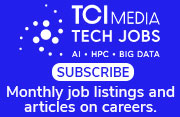
As you prepare for SC23, I invite you to spend a couple of minutes thinking about who you want to sponsor. I don’t mean who you want to send money to, how they will put your logo on their event announcement, etc. I want you to reflect on whose career you will talk up while you cruise the exhibit hall and attend the many events we all use to build our network.
Sponsoring someone’s career means mentioning their name when projects or opportunities arise. It means advocating for someone to get a raise or to get sent a job description. Often, the people whose names come to mind are those we work closely with or who have been mentioned to us as having high potential. Without intentionality, that can leave a way for proximity bias (“This person works down the hall from me.”) or recency bias (“I just heard this person’s name mentioned!”) to take hold. With intentionality, it can result in boosting the careers of people who sometimes do not get as many opportunities as others.
While sponsorship is good for everyone’s careers, it can have an outsized positive impact on women and people of color, who are more likely to experience racial and gender bias as barriers to their career advancement.
Here are some tips on how to be intentional about who you are sponsoring this fall.
Plan ahead
Take some time to think about who you work with that could benefit from some sponsorship. Do you know their career goals? If not, take a moment to check-in. Let them know that you are attending the conference. Then, ask about their goals, if there is anyone they are interested in meeting, and if they are okay with you putting their name in the hat for upcoming opportunities.
Look at your plans for the conference – do any of the session topics ring any bells as interests for earlier career professionals you work with? Is your list dominated by white people or men? Who can you add to the mix who might not be top of mind for other colleagues?
If you work with a team that will all be attending, perhaps make a joint list of colleagues whom you all want to sponsor.
Write it down
Make a document of names, career goals, and contact information. Once you’ve done the work of broadening your list, having something to look at will help keep bias at bay.
If you have mapped interests to sessions you will be attending, make a note of it! Try to work the person’s name into conversation while chatting at a break or after the talk. Bonus points if you can introduce the individual to the speaker right at that moment.
Create an accountability system
At a conference the size of SC, it’s easy to have contact with 100 or more people in a day. On your list, keep track of each time you mention someone in conversation. Write down the email addresses of people you were supposed to connect with. That way, when you get back from Denver, you have something to reference to keep the conversation going.
Make a game of it! Can you mention five people’s names in one day? Can you find a daily opportunity to talk up the merits of your job-searching colleague? If you have done this exercise as a team, maybe you can check in every day and buy a coffee for the person who is the most active sponsor.
When I speak with clients, they often express uncertainty about how to best support their colleagues. Sponsorship is an opportunity to grow your leadership skills and put some of that hard-earned social capital to work. Pay it back or pay it forward. It is your chance to make a difference.
See you in Denver!
Dr. AJ Lauer helps science and technology leaders thrive both inside and outside of the workplace. She is an expert on HPC diversity and workforce development. Her company Thriving Ibis Leadership Solutions provides a tailored-to-you mix of workshops, coaching, and consulting to provide individual and team leadership development, and help build inclusive workplaces. AJ holds an EdD in Interdisciplinary Leadership from Creighton University, MS in Higher Education Administration from Florida International University, and BA in Psychology from the University of Wisconsin-Madison.
This article originally appeared on HPCwire.



